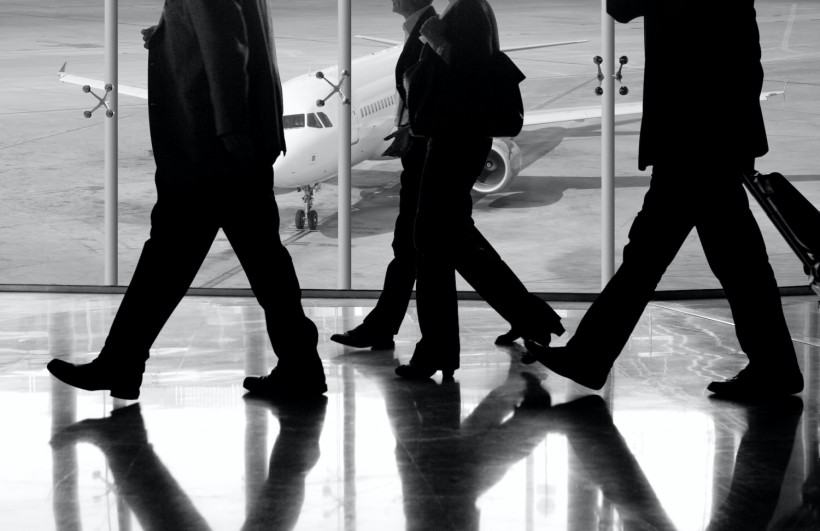
(Photo : Rob Wilson on Unsplash)
As a property manager, you'll probably be doing a lot of traveling. You'll need to travel to and from the properties in your management portfolio, you'll need to scout new locations, and you might need to run errands like going to the hardware store. You might even need to travel to different cities for conferences, professional meetups, and seminars.
How should you account for your travel expenses during these important trips?
Why Account for Travel Expenses?
Why should you be accounting for your travel expenses?
If you work for a property management company, you'll need to keep track of these expenses so that you can be properly reimbursed. Chances are, the company is going to reimburse you for any expenses you personally incur during any travel you've done for the business. If the company is not going to reimburse you for travel expenses, you need to be prepared to deduct these expenses on your taxes.
If you're working for yourself, you also need to track your travel expenses, as most of these are going to be tax deductible. Definitely consult with a tax professional to figure out how these tax deductions work and how to maximize your efficiency when tracking and reporting them.
Best Practices for Accounting for Travel Expenses
These are some of the best practices for accounting for travel expenses as you travel for your job as a property manager:
- Fully understand the compensation policy (if applicable). If you do work for a property management company, make sure you fully understand the compensation policy if it applies to you. What types of expenses qualify for compensation? Should you be using a company card for certain expenses? Which expenses are you supposed to be tracking and how are you supposed to track them? Different companies will have different ways of handling this, so it's important to know your specific policies.
- Separate actual costs and subsistence expenditures. Always keep separate categories of expenses for actual costs and subsistence expenditures. Actual costs include things like the cost of plane tickets, gasoline, and bus fare. Subsistence expenditures include things like meals. It's important to separate these expenses because they're going to be indexed differently.
- Make it a habit to record mileage. The standard mileage reimbursement rate is now $0.625 per mile. Your company may reimburse you for this rate, or you may be able to claim this as an expense on your taxes. Either way, you'll need to record your mileage consistently. The best way to do this is to consistently take a picture of your odometer every time you set foot in the car for a business trip. You can also set a reminder for yourself whenever you plan to leave so that you can remember to log your mileage.
- Use a consistent form of payment. Ideally, you'll use a consistent form of payment throughout all your necessary travels. Your company may provide you with a company card to pay for any necessary expenses, or you may have a business credit card of your own. Even if this isn't the case, it pays to use the same form of payment consistently so that all your expenses are going to be tracked in one place.
- Keep your records all in one place. Speaking of keeping things in one place, make sure to keep your records organized in a way that gives you full accessibility in the future. If you need to pull up these records for any reason, you should be able to without any hassle. While you're at it, make sure you back up all your data on a cloud storage platform; this way, even if your device crashes, you'll have another copy to fall back on.
There are also some helpful strategies that can allow you to save money on business trips, which is especially important if you're the business owner:
- Keep the trips short. Whenever possible, keep your trips short. There's no reason to take the long path to a destination, and there's no reason to stay an extra day when you can easily handle the trip in less time. Skipping a night of hotel accommodations each time you travel can add up to make a big difference.
- Utilize inexpensive travel solutions. It's also a good idea to utilize inexpensive travel solutions. A direct flight might be more convenient for you, but dealing with the connection could save you hundreds of dollars. Additionally, taking an Uber instead of a cab could cut your expenses significantly, depending on which city you're in.
- Look for corporate rates and special discounts. If you know where to look, you can often find accommodations that offer corporate rates and other special discounts or incentives. Always ask if these incentives exist and try to take advantage of them if you can.
- Don't go overboard on food and entertainment. Travel expenses spiral out of control quickly when travelers overindulge on food and entertainment. These aren't always necessary expenses, and they can usually be reduced without much issue.
Improving your tracking of travel expenses as a property manager can increase your tax deductions, maximize your reimbursements, and ultimately make your life easier. Best of all, none of these strategies requires much effort or commitment, so you can consider them truly low hanging fruit.
* This is a contributed article and this content does not necessarily represent the views of hngn.com








